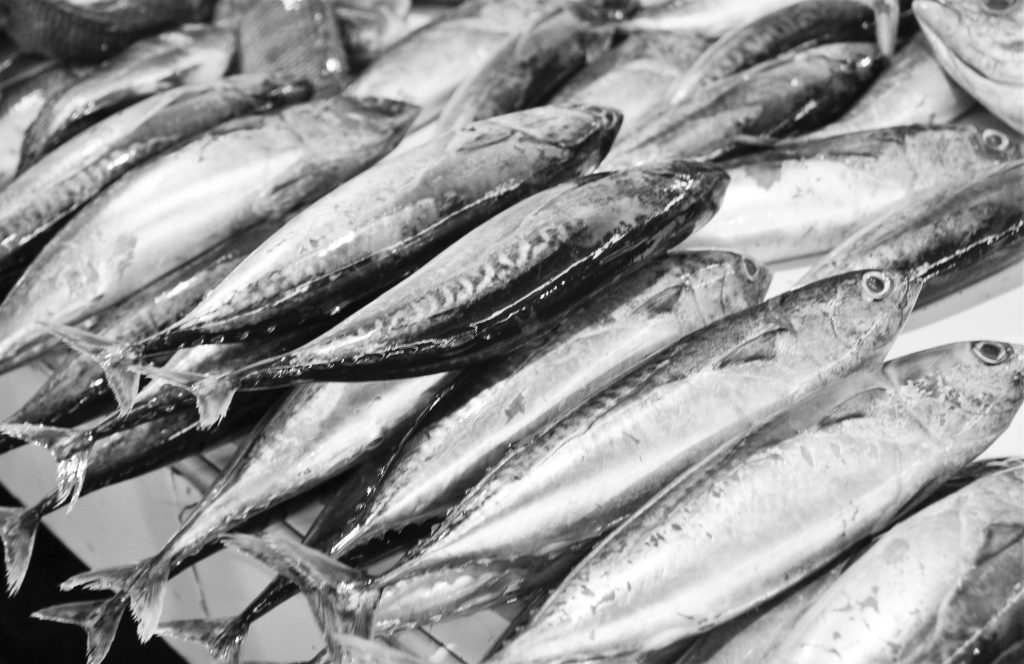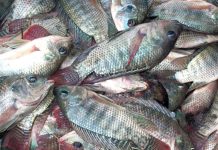 “The trouble is simple: There are too many fishermen and not enough fish. This is not yet a crisis in the dire terms to which the world is accustomed – there are no long lines at fish markets with empty stalls, no skyrocketing prices, no famine on the beach.” – Michael Parfit writing for National Geographic
“The trouble is simple: There are too many fishermen and not enough fish. This is not yet a crisis in the dire terms to which the world is accustomed – there are no long lines at fish markets with empty stalls, no skyrocketing prices, no famine on the beach.” – Michael Parfit writing for National Geographic
***
Give man a fish, so goes a Chinese saying, and he will eat fish for a day. Teach him how to fish, and he will fish for his lifetime. “If we don’t watch out, this adage may soon become obsolete,” deplores Roy C. Alimoane, director of the Mindanao Baptist Rural Life Center (MBRLC).
Consider this: It’s noon time and 63-year-old fisherman Ronnie Estrera already docked his banca. He had no catch even though he started out dawn going to Bago Aplaya, which used to be haven of fish in Davao City. “It’s not only now. For several times, I went home without fish,” he deplored.
His son, 19-year-old Dondon, was fortunate – he was able to bring one ice box of fish catch. But he said the fish were getting smaller and fewer. He had to fish farther south into the waters of Santa Cruz in Davao del Sur. “Fishers are already scarce in Bago Aplaya,” he sighed.
Fishing accounts for only one percent of the global economy. But on a regional basis, marine fishing contributes enormously to human survival. In Asia, for instance, more than one billion people rely on fish as their main source of animal protein. After all, fish is considered the “poor man’s meat.”
Dr. Veravat Hongskul, when he was still the regional fishery officer of the UN Food and Agriculture Organization (FAO), told this author: “While fish is not an important source of calories in the human diet, it does have an important role in food supply of many communities, especially in the developing world.”
He said fish contributes animal protein to the human diet. “Fish protein is generally recognized as a valuable ingredient in a balanced diet,” Dr. Hongskul explained. “It is of high biological value and contains essential amino acids not normally found in staple food. Fish oil also contains essential fatty acids, which are necessary for the proper development of the brain and the body. Where staple foods are available, a small quantity to increasing consumption by improving the over-all palatability of the food and add to its nutritive value.”
In the Philippines, fish is the second most important food after rice. Per capita consumption of rice, the basic staple, is about 100 kilograms. On the other hand, consumption of fresh fish is pegged at 40 kilograms or more than twice the per capita consumption of fresh and processed meat, poultry and other meat products combined at 16.5 kilograms.
Meanwhile, the per capita consumption of other fishery products, statistics available showed, is four kilograms for dried fish and another four kilograms for processed fish, and seven kilograms for crustaceans and mollusks.
Despite the country’s vast aquatic resources, the Philippines sadly now experiences a shortfall in fish supply. “With the country’s population growth expected to continue apace in the next three years, demand for fish should increase,” said Dr. Rafael D. Guerrero III, a fishery expert and national scientist at the National Academy of Science and Technology (NAST).
Although fish stocks are a renewable resource, many of them are strained to the limit, says the Bureau of Fisheries and Aquatic Resources (BFAR), a line agency of the Department of Agriculture.
“Over the years, they have suffered from a widespread notion that the seas are inexhaustible and economic pressures that have encourage over-exploitation,” it points out.
Around the world, about 200 million people depend on fishing for their livelihoods, and fishing has been termed as “the employer of last resort” in the developing world – an occupation where there are no other options.
Fishery is the name applied both to the commercial enterprises that harvest fish and shellfish from waters, and to the waters themselves where such fishing takes place. The most productive fisheries extend outward from coastlines as far as the continental shelf, an average of about 80 kilometers from the shore. They are less than 650 feet) deep, but due to favorable currents and temperatures and abundant plant life, they hold most of the oceans’ fish.
And so, it came to pass: The wealth of oceans, once deemed inexhaustible, has proven finite, and fish, have become a resource coveted.
Fish shortage is not only apparent in Bago Aplaya, Davao City but in almost all fishing grounds in the country. “We are running out of fish and running out of time. For a country known for its marine biodiversity, there are very few fish left to catch,” deplored Vince Cinches, oceans and political campaigner for Greenpeace Southeast Asia.
In Southeast Asia, “nearly all waters within 15 kilometers of shore are considered overfished,” reports Dr. Edgardo Gomez, director of the Marine Science Institute of the University of the Philippines.
Peter Weber, a staff member of the Washington-based Worldwatch Institute, agrees. “Overfishing is the primary cause of dwindling fish population,” he writes in his extensive report, Net Loss: Fish, Jobs, and the Marine Environment.
Majority of fishing grounds in the Philippines are overfished. In fact, 10 out of 13 of these are under intense fishing pressure. Davao Gulf, the 10th major fishing ground in the country, is a critical resource supporting the economies of six coastal cities and 24 coastal municipalities in Davao region.
All over the country, the declining fish stocks have significantly affected the standard of living of most fishermen, whose number totaled 1.7 million. Those who try to fish in other fishing grounds are bound to incur more costs. Not only that, they even court for troubles as they sail far to those unfamiliar areas.
There are also those who risk their lives from sea bandits. “These groups would force the fishers to give them fish catch,” Buenafe Olarte, BFAR national fisherfolk director, told Philippine Panorama. “Sometimes, they just threaten to kill, but others would not hesitate to kill our fishermen in exchange for food or banca.” (To be continued)






